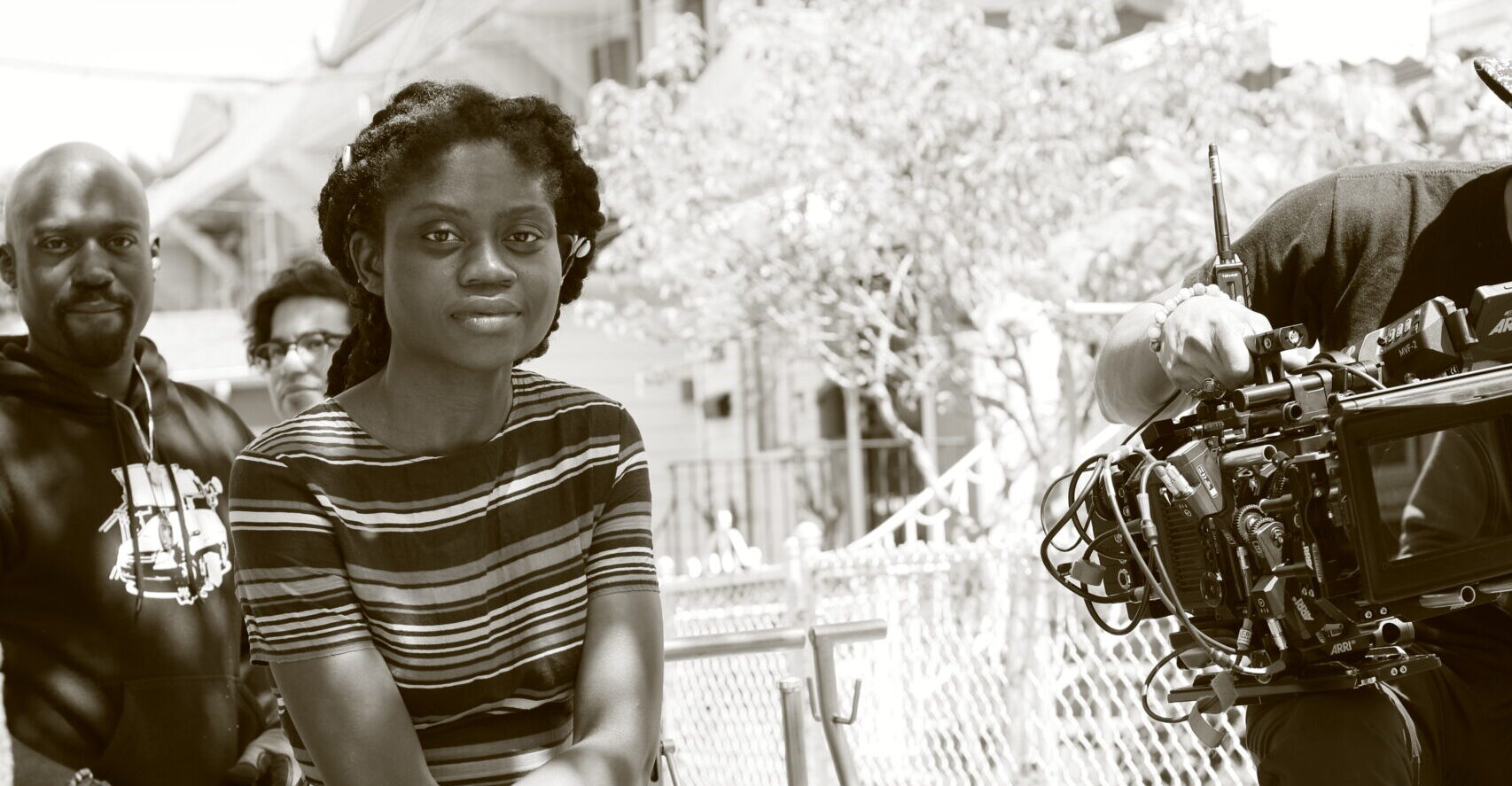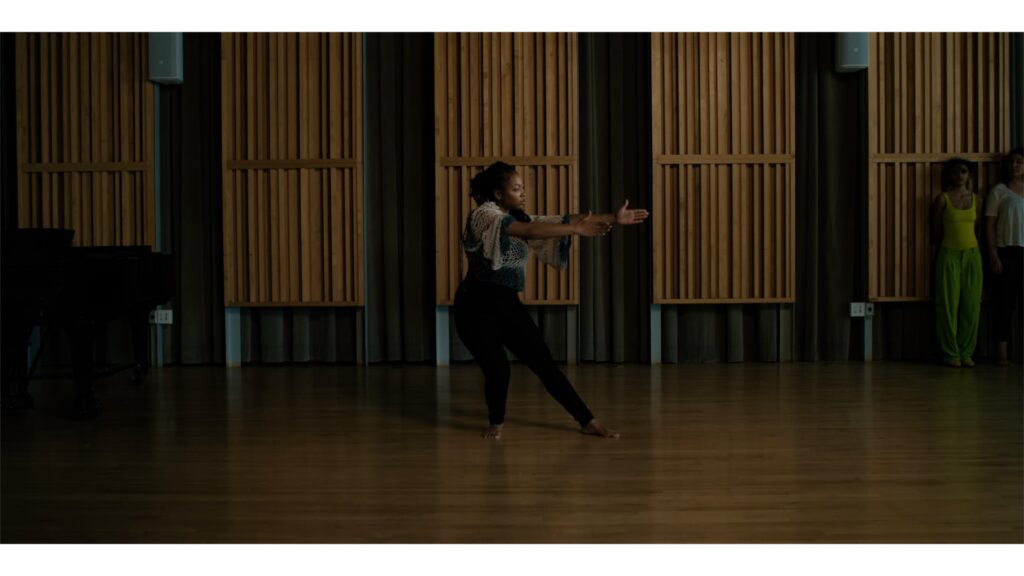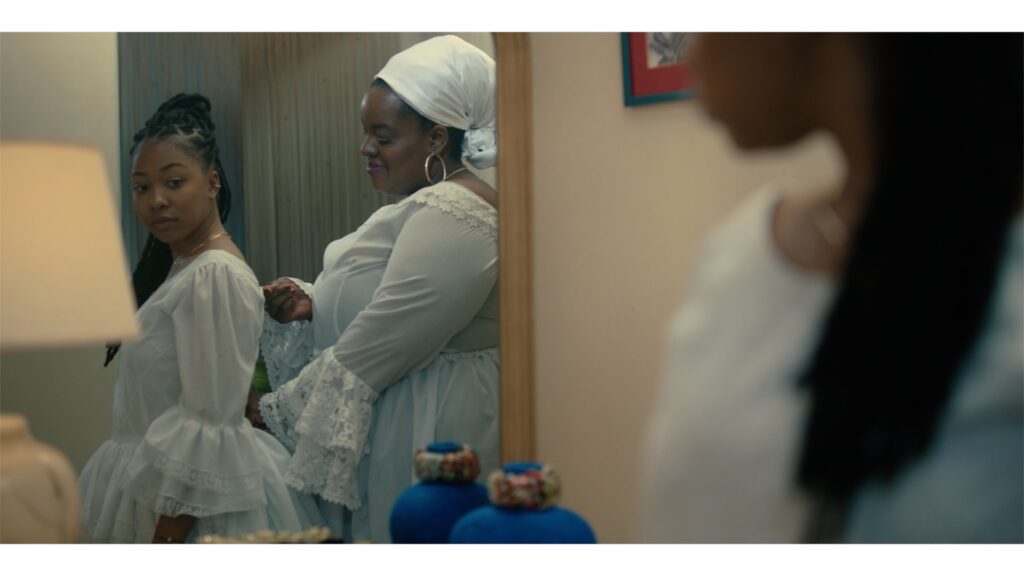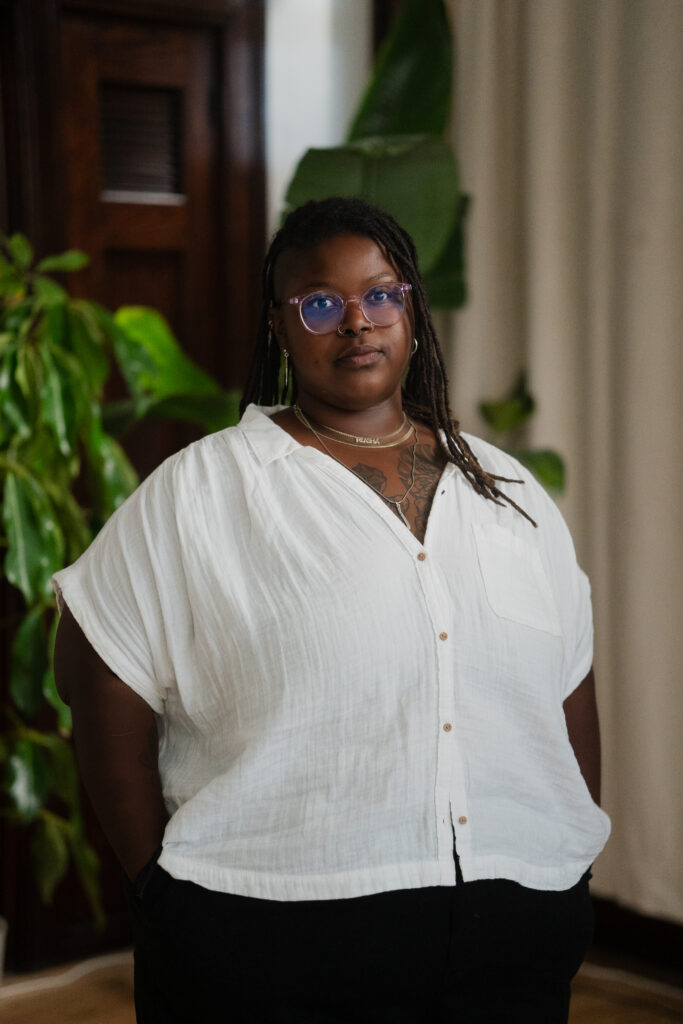
19 Mar Philadelphia Artist Spotlight: Lunise Cerin
BY IREASHIA BENNETT
The cinéSPEAK Journal publishes a monthly Philadelphia Artist Spotlight highlighting local filmmakers and moving image artists doing unique and impactful work.
Lunise Cerin is a Haitian-American filmmaker who crafts stories and immerses viewers in worlds that situate embodied and autonomous Black and Haitian women at the center. Oscillating between documentary and narrative for over 12 years, Cerin explores themes such as identity, heritage, and one’s connection to place and tradition with a Haitian diasporic perspective.
Cerin received her MFA in screenwriting from Columbia University and has been awarded multiple accolades and grants for her work. In 2023, Cerin was awarded the Leeway Art & Change Grant and Independence Public Media Foundation’s Local Filmmaker Fund, which both financially support her current documentary project Miwa. This observational film explores Haitian diaspora through an assemblage of stories and sounds. Currently, she is the Curriculum Manager at Scribe Video Center, where she will co-lead a 14-week production course alongside Charlie Raboteau this spring to strengthen and support the work of early-career filmmakers in Philly.
In her essay “Artistic Integrity: Race and Accountability,” bell hooks writes: “To become filmmakers, Black artists globally start from the standpoint of resistance, no matter the culture they work in.” Resistance can take many forms. Lyrical and evocative, Cerin’s films are sites of resistance through her nuanced and diverse portrayals of Blackness that are not shrouded in trauma, sorrow, or violence. Although those experiences are present and handled with care, they are not central to her stories.
The cinéSPEAK Journal spoke with Lunise Cerin about her latest dance film Victorine, her journey from photography to filmmaking, and her commitment to spotlighting Haitian spirituality, culture, and history in her work.
cinéSPEAK: How long have you lived in Philadelphia?
Lunise Cerin: I was born in Philadelphia and grew up between Philly and Haiti. Philly has always been a second home for my family. I completed high school in Philadelphia and after college moved to Los Angeles, where I lived for seven years pursuing a film career, but moved back to Philly in 2020 because of the pandemic.
cinéSPEAK: What inspired you to be a filmmaker and media artist?
LC: My first love was photography; I was something of a family documentarian, photographing special events like my cousin’s first communion and my sister’s 16th birthday. In undergrad, I studied sociology with a double minor in criminal justice and fine arts, focusing on traditional photography. I was introduced to artists like Carrie Mae Weems, who captured Black women in a way I’d never seen before. I was also coming out of undergrad when web series like Misadventures of Awkward Black Girl and The Couple were gaining popularity, and filmmaking was feeling like a more possible/accessible route to explore. Film was the perfect medium to explore my fascination with studying society and the moving image.

cinéSPEAK: How did you get started on your most recent film?
LC: I wrote Victorine in my first year at Columbia University. The idea was to write a film that took place in the heart of the Haitian community in Brooklyn. I have always been fascinated with stories around assimilation, identity formation, etc. [Victorine] is about a girl who is running from her family’s Vodou practices. I wanted to write a film that dealt with the duality of growing up in between cultures and the duties that come with that, whether we want to face them or not.
I’m still shocked that I wrote a film based around Vodou because I’m so weary of misrepresentations of Haitian culture and spiritual practices in media. [Still], I wanted to try to offer something different, something accurate. This film was made with a lot of care and always in conversation with many Vodou practitioners. We think of it as an offering that truly depicts the practice while also honoring its sanctity and not exploiting anything that doesn’t need to be depicted on camera. So I’m incredibly grateful to have been a vehicle for that expression and grateful to the practitioners who participated in making that intention a reality. I also think I missed my calling as a dancer, so writing and directing a dance film allowed me to play with that.
cinéSPEAK: What topics and themes are you exploring in your current work?
LC: Currently I am working on a few documentaries as an editor and story producer, all shot in Haiti exploring a range of topics. One titled The Fight for Haiti, directed by Etant Dupain, is about the most recent wave of activism in Haiti sparked by the PetroCaribe scandal and young people all over the nation standing and asking the government to bring the dilapidators of those funds to justice. This will be out later in 2024. Another film I’m editing and story producing is called Les Etoiles Sur vos Tombes, a documentary directed by Pascale Solages about femicide in Haiti. [It follows] the families of the victims, retelling these women’s stories and exploring the ways their families are shattered in the aftermath of these acts of violence and how the Haitian justice system fails to address the rampant issue in the community. The third piece will be my first documentary, titled Miwa, an observational documentary tracing Haitian rituals and how they are practiced in Haiti and preserved throughout the diaspora.

cinéSPEAK: How has Philadelphia shaped and influenced the process and content of your work?
LC: Philadelphia is home to many thriving immigrant communities. It is also a city that honors and celebrates the spirit of Pan-Africanism to its core. I find that Philly, more than many other US cities, is a place that encourages folks to raise flags and share our traditions with pride. We aren’t a city that asks for Blackness to be just one thing. As an immigrant artist in Philadelphia, I am in community with several other immigrant artists who are also making pieces about their heritage and culture. And I have many Black American friends who have a lot of love and curiosity about Haitian history and culture. What this has meant for me as an artist is that I’ve never been made to feel that the pieces I make about Haiti aren’t welcomed here or won’t have an audience. I’ve found that folks are generally really open and inviting. It’s a really rich and beautiful thing to live in a place that champions that kind of diversity and allows for this type of expression, and I will always love Philly for that.
cinéSPEAK: What impact do you hope your work will have in the Philadelphia community?
LC: I hope my work can help young Haitian immigrants in the city to feel more connected to their heritage and each other. I hope that my work can be an invitation to folks who are curious about Haiti to see the rich inheritance that Haiti is–not only for Haitians but for Black people across the diaspora. I hope my work celebrates and elevates Black culture in film and champions Black and women-led stories that have often been overlooked or told without care. I hope to offer something different, something I didn’t see when I was younger, not just to Philadelphia but to the world.
If you would like to keep up with Lunise Cerin’s work, you can check out her work here or follow her on Instagram @tinabelike.
*Featured Image: Image of Lunise Cerin directing on the set of Victorine. Image credit: Daveed Wilkins.
Would you like to be featured in a future spotlight? Please fill out the Philadelphia Artist Spotlight form. The cinéSPEAK Journal maintains sole discretion over the publishing of any information provided via the form. Questions: journal@cinespeak.org

Ireashia M. Bennett (they/them) is a Philadelphia-based filmmaker, photographer, and writer whose work aims to celebrate Black queer and disabled folks in the form of new media, short films, and photoessays. They earned a B.A. in Journalism from Columbia College Chicago and are pursuing an MFA in Film and Media

Sorry, the comment form is closed at this time.